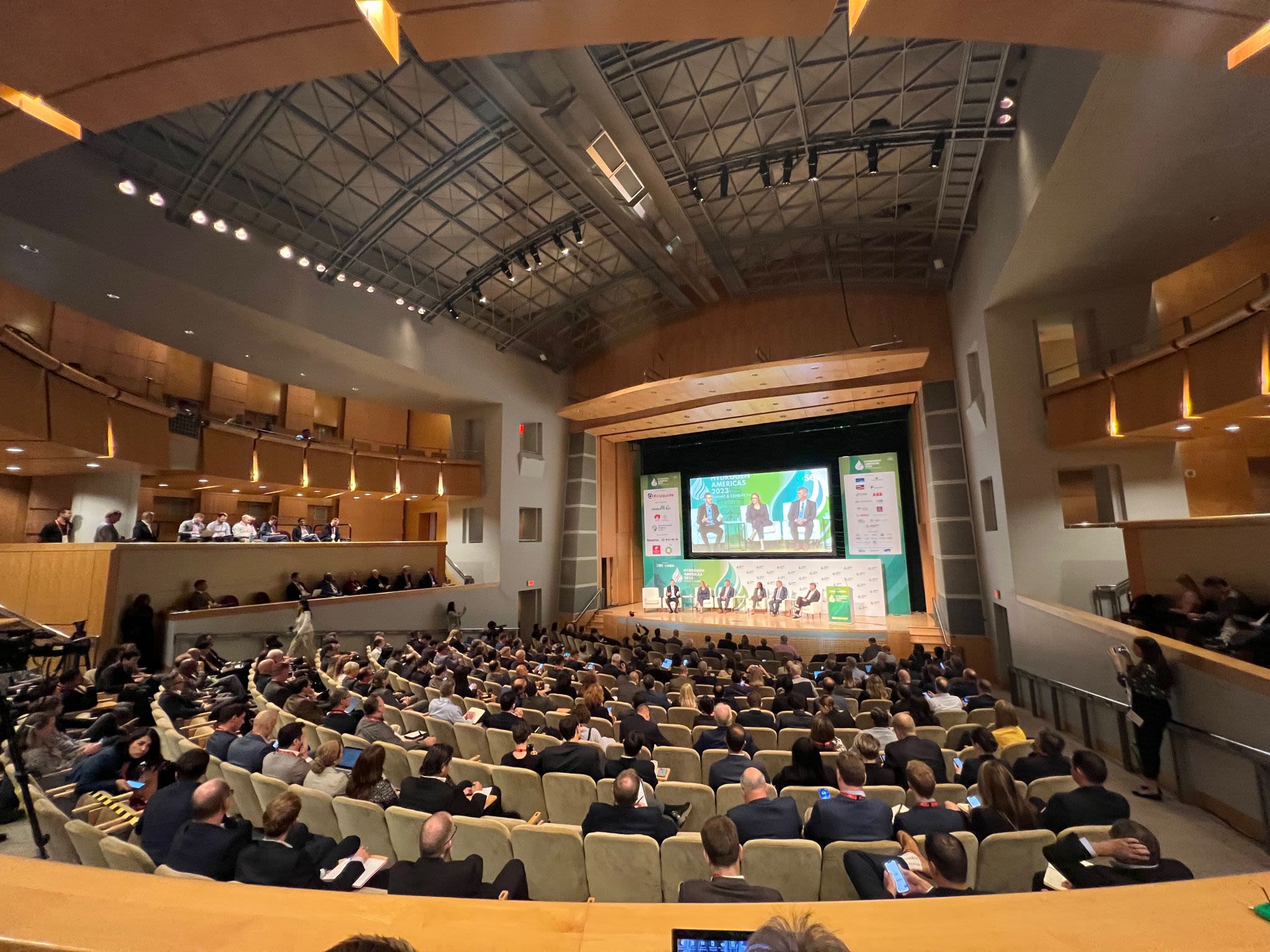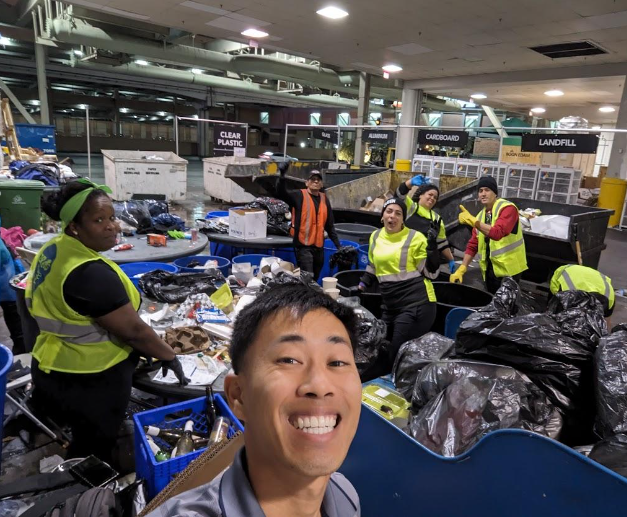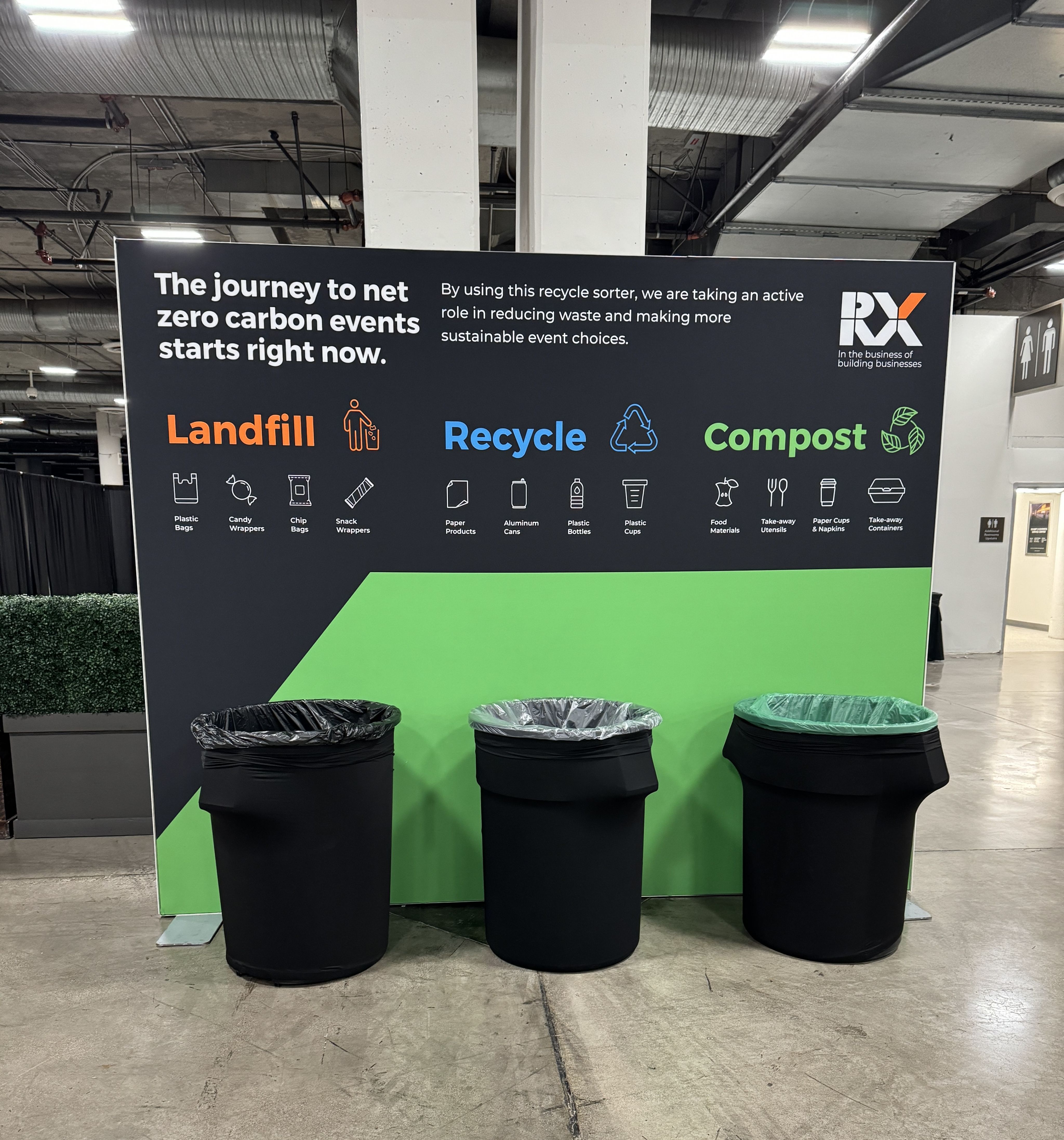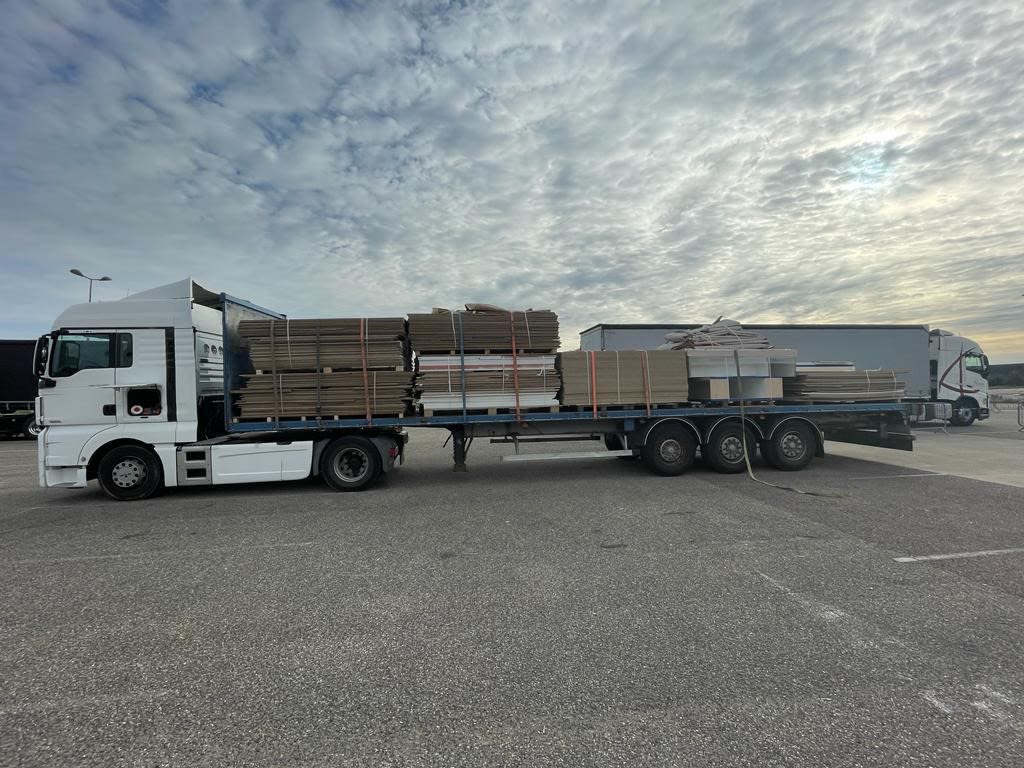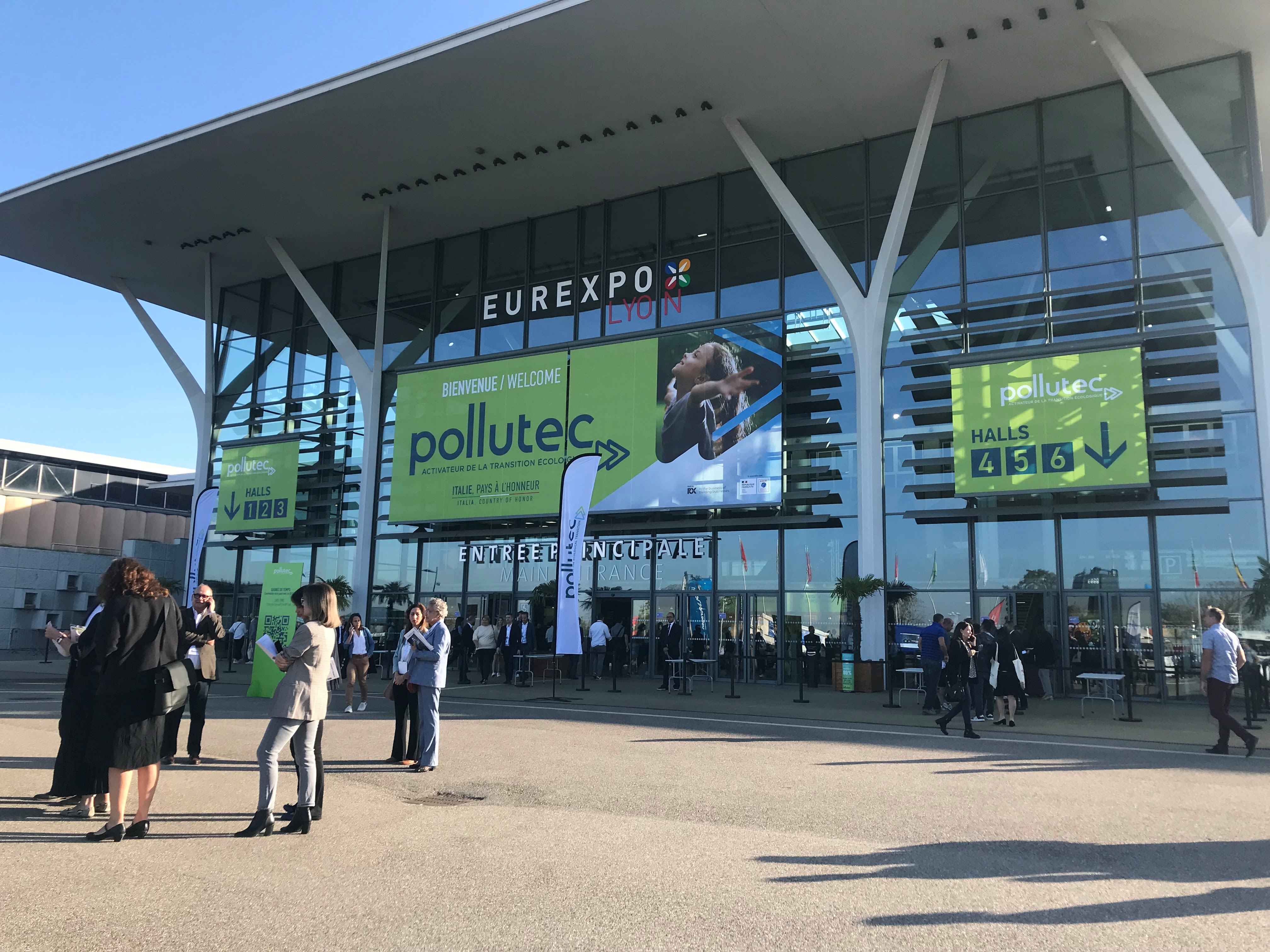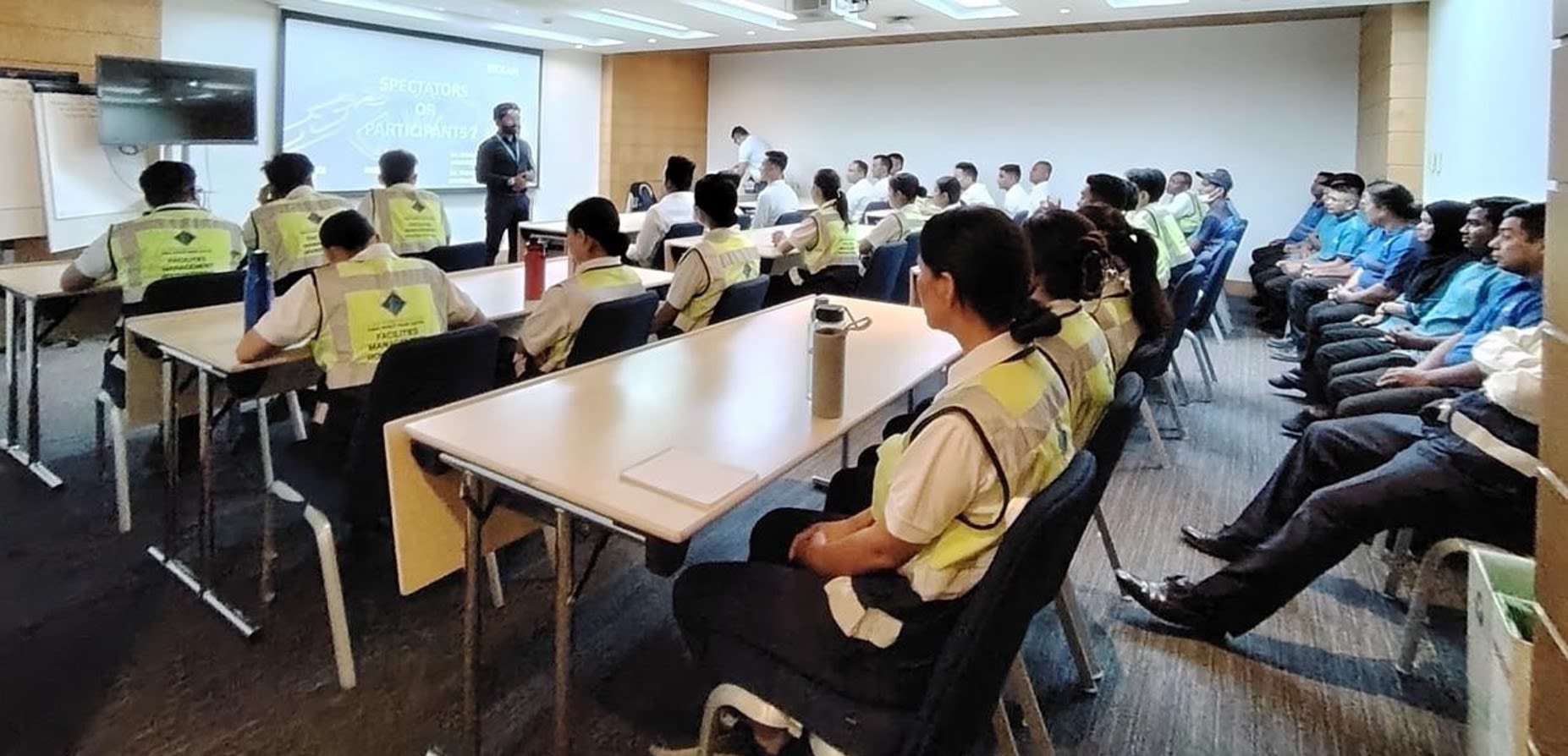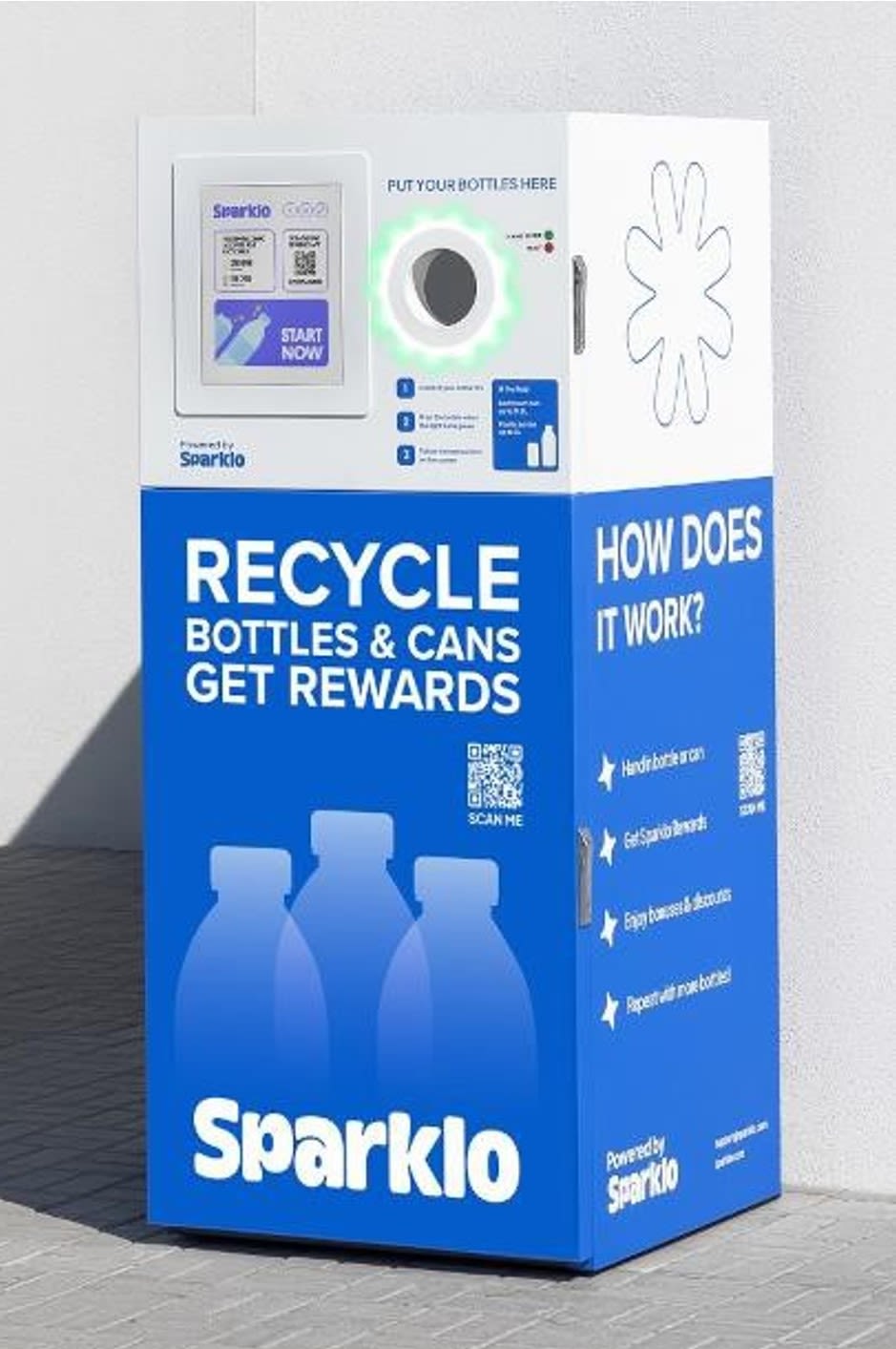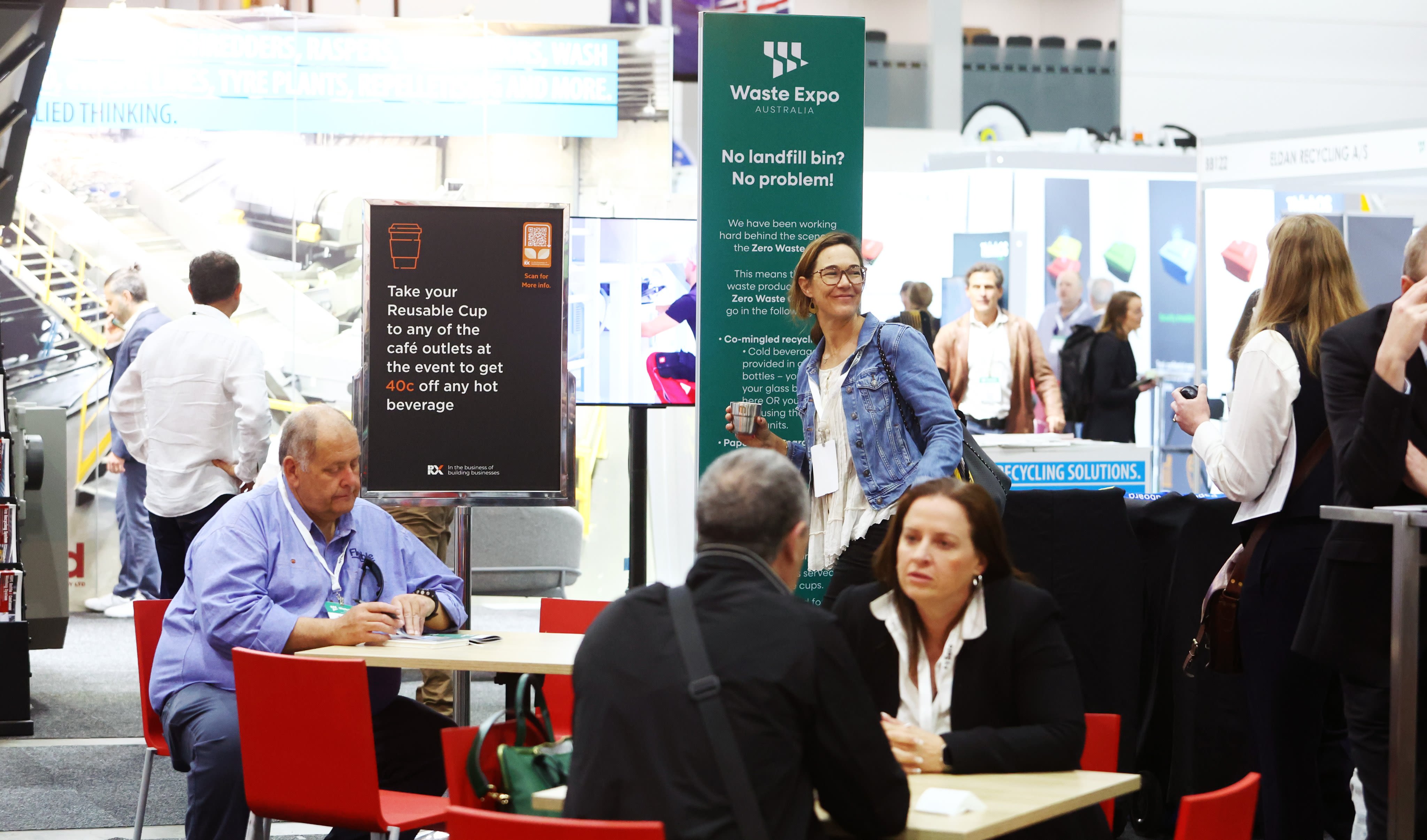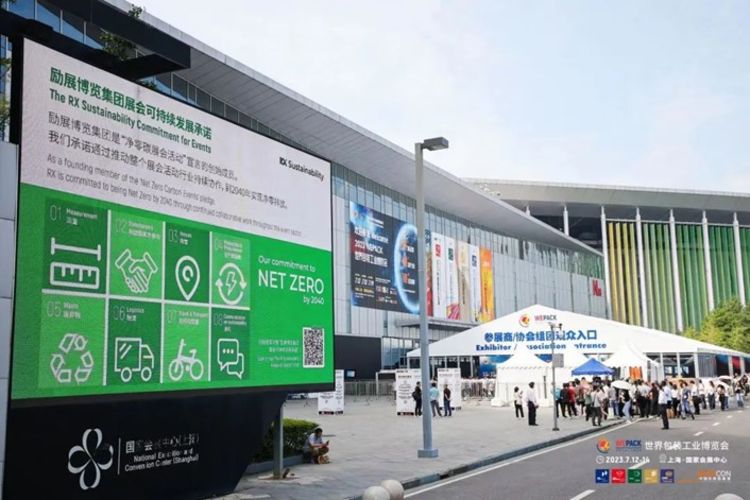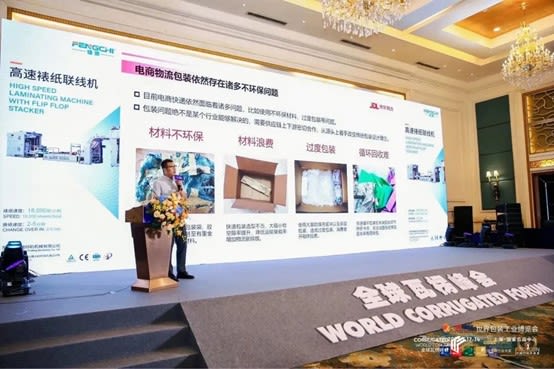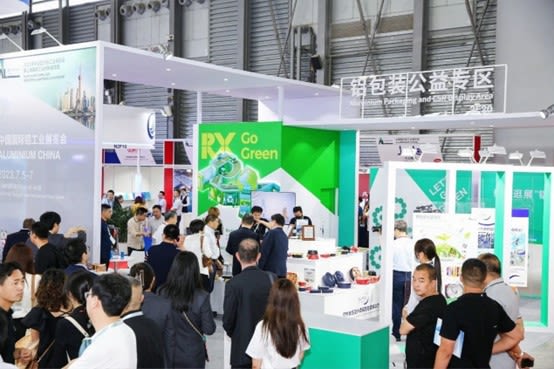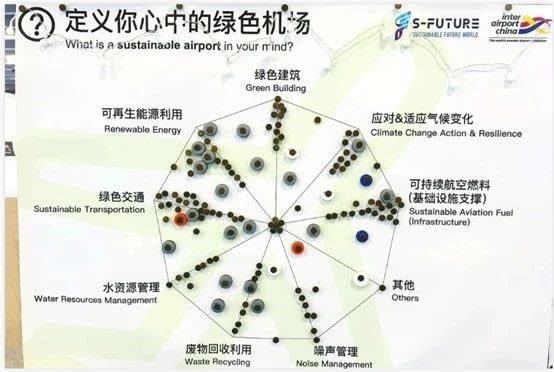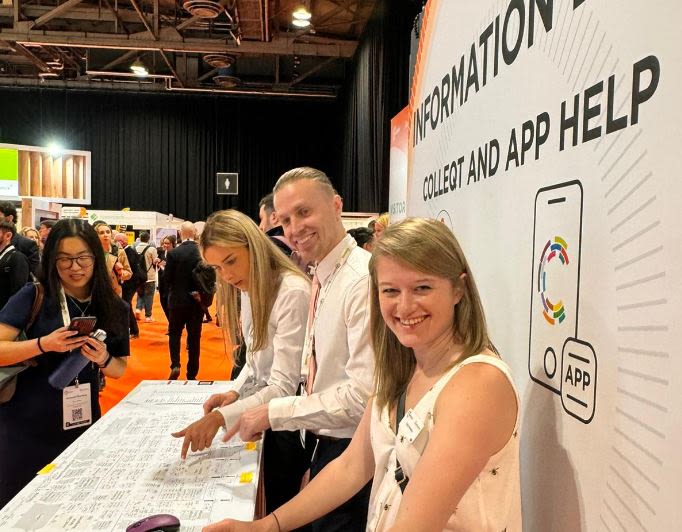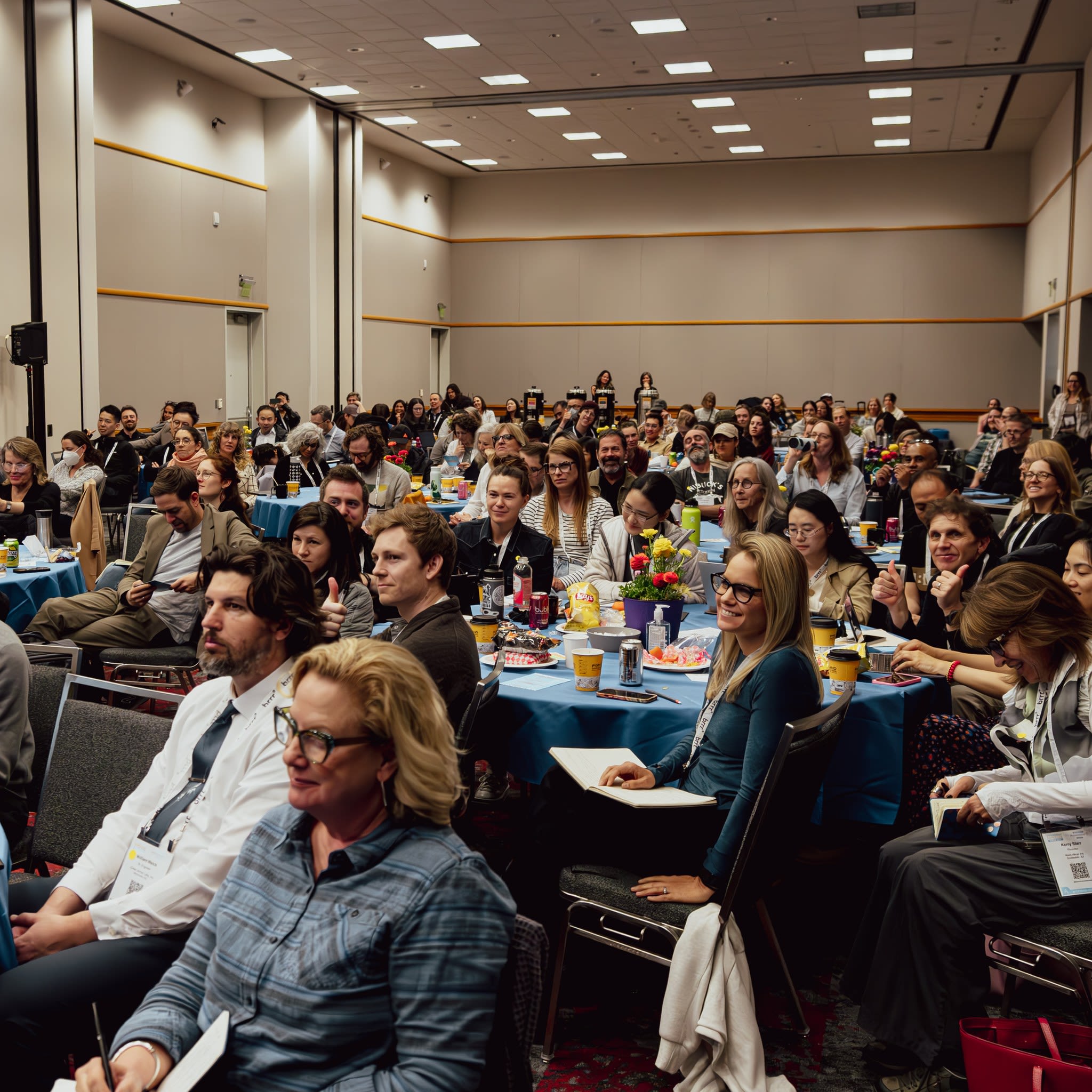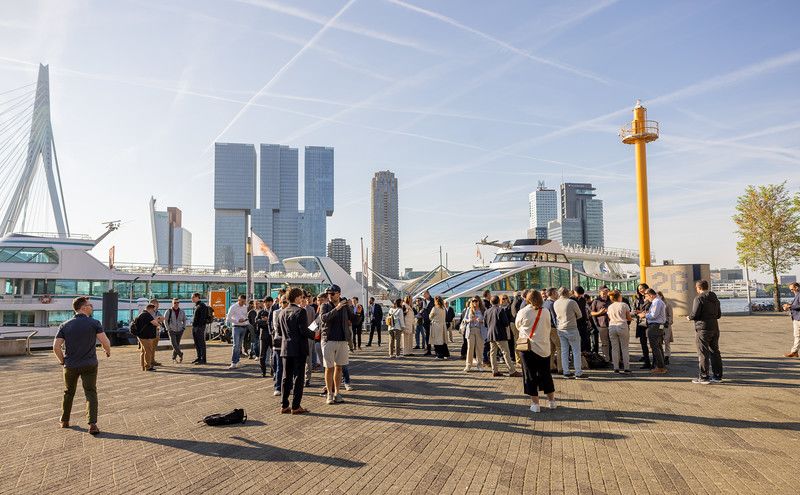Net Zero by 2040
Discover our journey so far

At RX, we're going green with style! We're rolling out the green (recycled) carpet to flaunt our eco-friendly actions and how we're minimalising the environmental impact of our events.
Getting to grips with trade show waste

Towards net zero waste
Over the last two years, RX has taken significant steps to capture waste data in partnership with our venues, cleaners and waste contractors, as part of our journey to achieve net zero by 2040. Whilst this data doesn’t typically include waste associated with exhibitor stands, which contractors are responsible for removing, it does provide us with vital baselines against which we can measure and manage waste reduction.
Now ISC West, the leading comprehensive and converged security trade show in the US, has embarked on multi-year mission towards zero waste in partnership with MeetGreen, a leading sustainability consultant in the sustainable event space.
Among key initiatives at ISC West 2024, they developed a comprehensive sustainability guide for exhibitors; installed new waste stream receptacles on-site to increase recycling rates; provided recyclable cups and utensils at all retail concession outlets; and invested in hand sorting operations, ensuring refuse was placed in the correct recycling, composting, or landfill stream. The team also launched a food donation program through which almost a metric ton of food materials were donated to local non-profit organizations.
These efforts increased ISC West’s diversion rate by 8%. Only 22 of the 97 metric tons of waste went to landfill, meaning 75 metric tons (or 77%) was recycled and composted.
All eyes are now on ISC East 2024 (19-21 November) in New York where the team will once again be partnering with MeetGreen to stream and sort waste and educate exhibitors and educate attendees on our sustainability program. They are also working closely with the New York Javits Centre catering team to minimise food and beverage waste through ‘total food utilisation’ (using whole ingredients) and using produce from the centre’s greenhouse which is fitted with a hydroponic growing system. Food waste will be composted, and surplus foods donated to local community partners. Water coolers will also be provided throughout the show floor to minimise the use of plastic water bottles.
The value of upcycling
Green Bee Event Upcycling is a French company which works to reduce event waste by promoting and facilitating its recovery and re-use. RX France first partnered with Green Bee in 2022 to minimise the waste produced at MIPIM, the world’s leading real estate event. Today, we work together across our Cannes-based events to identify, reduce and repurpose everything from stand building materials, furniture and signage, to badges, lanyards, carpets cut-outs and food waste.
Green Bee helps our operations teams to identify recoverable and reusable materials in our feature areas and partner spaces; finds entities (such as charities, not for-profits or schools) that are interested in reusing waste materials; and monitors waste sorting on site. They reach out to stand contractors and exhibitors before each event to educate them on waste management and raise awareness of our targets. And they invite attendees to explore the opportunities for waste recycling at fun and innovative workshops on the show floor. For example, at MAPIC 2023, visitors to the new Sustainability Lab were invited to turn event waste into unique and meaningful products, including making wallets from carpet off-cuts.
For each event, RX France receives a waste certificate enabling us to monitor our progress, together with recommendations and actions for improving year on year. For MIPIM 2023, total waste was reduced by 32% compared to 2022, amounting to over 62 tonnes.
Among the many assets upcycled at MIPIM 2023 with the help of Green Bee, three tonnes of wood from our ‘Road to Zero’ zone were given to the Fondation de Nice, to furnish their facilities and fit out social housing projects in the Alpes-Maritimes region. Melamine partitions from our VIP Lounge were donated to the Hack Lab in Sophia Antipolis, an exchange dedicated to scientific collaboration, to furnish a Hack Lab for children. Around 40m² of printed tarpaulin went to the Fondation de Cannes' eco-school project to make 500 upcycled pencil cases for schoolchildren entering the first grade. And 150m² of scrap carpet was donated to the Nice Curling Club association to line the side lanes of the curling rinks, as it makes an ideal non-slip material.
Food for thought
With trade shows attracting many thousands of exhibitors and attendees who all need sustenance over multiple days, food waste is a particular challenge for event organisers.
Part of IBEW (International Built Environment Week) in Singapore, BEX Asia (The Built Environment Expo) is a 16-year-old event with a track record for driving green building innovation, and for leading by example.
With over 1,000 delegates expected across three days, the 2024 IBEW Conference required extensive catering, including lunches, tea breaks, a networking buffet, and a CEO sit-down dinner. Past events had experienced up to 40% food waste, particularly during lunch, as many delegates opted to have private meetings or take a quiet break off site. This prompted the team to find a solution to minimize food waste while ensuring sufficient catering for attendees.
The team began by reviewing data from 2022, comparing food orders to delegate numbers and analysing post-event food waste reports. They also introduced a registration question to understand attendees' lunch plans, helping predict how many would participate in each day's meal. This combination of historical data and real-time insights allowed them to make more accurate predictions about food requirements.
Out of 1,439 registrations for the 2023 conference, 500+ were complimentary passes, and many complimentary attendees typically did not attend all three days. Additionally, 15% of paid delegates indicated they wouldn’t attend lunches. Based on this, and insights into delegate behaviour (such as lower attendance on the final day), the team estimated that catering for 850-950 people would suffice, refining the numbers for each day based on session interest and industry relevance.
In the end, the decision to reduce food orders (800 for Day 1, 740 for Day 2, and 600 for Day 3) proved successful. Attendance at the lunch areas matched predictions closely, allowing the event to minimize waste without sacrificing delegate satisfaction, demonstrating the effectiveness of combining data analysis with event experience.
Engaging customer support
One of the biggest challenges to cutting carbon emissions at long established trade shows is changing exhibitor and contractor behaviour.
As a leading international event for the environmental and energy sector, Pollutec has a responsibility, and a great opportunity, to set a sustainable example to the industry. In 2023, the event team took the bold decision to eliminate carpets from the aisles. Not only did they save eight tonnes of waste from landfill; they were able to redirect the money saved into a comprehensive waste management and education programme.
Working in partnership with Re’Up (a waste management start-up), PAPREC (an exhibitor and leader in waste management), Axial (a cleaning company), and the venue, the Pollutec team identified local companies who were willing to accept waste materials for reuse; sorted waste directly on the show floor at designated collection sites; installed CCTV at collecting sites to oversee their use; and introduced heavy fines for illegal waste dumping.
For the first time at Pollutec a ‘Contractors’ Village’ was provided, where contractors could meet and feel part of a community. The meeting point, constructed entirely from waste event materials, was set up in the main car park next to the stand contractors’ registration office. Free coffee and afternoon refreshments were provided, and there was a Contractors BBQ in the ‘village’ during build-up - a tradition taken from the construction sector which was very well received. These actions helped to raise awareness of and legitimize the role of Re’Up, while helping the RX operations team to build stronger relations with the contractors.
To further motivate contractors to engage with waste reduction and recycling, and share their actions on their social media channels, the team launched an ‘EventGreener’ social media challenge (#EventGreener Pollutec 2023). Three winners each received a communication package in which they were promoted as ‘Green Partners’.
All this activity was reinforced by a Waste Management Guide and newsletters to educate and inform contractors about their sustainability actions, and clear signage and QR codes on site to increase visibility and information about waste collection and recycling.
Even though Pollutec 2023 was 25% bigger than 2021 in terms of gross space (sqm), and 7% bigger than the pre-pandemic event in 2018, the team succeeded in reducing the total amount of waste generated at Pollutec by 9% compared with 2021 and by 49% compared with 2018. Thirty tonnes of materials were reused and 69% of waste in 2023 was upcycled, compared to 34% in 2021. This waste was delivered to local contractors to limit mobility and freight impacts.
Partnering on waste reduction
Arabian Travel Market (ATM) celebrated its 30th annual event in 2023 in Dubai by initiating 30 short, medium and long-term sustainability goals to make ATM more sustainable. In 2024, the event team took the important step of completing their first carbon footprint of the event, with a particular focus on waste reduction.
Despite setting a new show record with more than 46,000 attendees across four days, the venue reported that ATM 2024, increased their waste diversion rate away from landfill from 5% in 2023 to almost half (48%) in 2024. Although overall waste increased by 14% there was a 38% reduction in landfill waste and waste carbon emissions reduced by 13%. For the 2025 edition, the team will work with the venue and exhibitors to focus on overall waste reduction whilst increasing their recycled rates.
Working closely with the Dubai World Trade Centre, ATM pursued a wide range of initiatives to reduce and recycle waste. Staff training was provided on all aspects of waste management inside the halls, including the use of colour coded skips to separate general, recyclable and hazardous waste; and Sustainability Champions were appointed to implement and monitor waste segregation and management during the event.
Food waste was minimised through composting and donations of excess food to local community programmes. Dedicated food waste bins were provided at all catering areas. And customers also enjoyed a 50% discount on food at selected outlets from 6-8pm, to minimise left over foods at the end of each day.
Dubai World Trade Centre and ATM also partnered with Sparklo, a global cleantech company which promotes recycling through innovative reverse vending machines (RVMs). Installed through the venue, the RVMs encourage bottle returns by rewarding users with incentives that can be used for future purchases. 2,200+ bottles and cans were collected during ATM 2024, averting 300kg of CO2 emissions.
Driving industry action
As one of the world’s leading event organisers, RX is committed to using our trade show platforms to address some of the world’s most complex challenges – including waste management.
Waste Expo Australia is the country’s biggest event for waste management and resource recovery, held every October in Melbourne. At the 2024 event (23-24 October), over 3,000 professionals from across the industry spectrum are expected to attend to explore innovative material usage, enhance recovery processes, and minimise landfill waste. Alongside the sold-out expo, 100+ conference speakers will cover key topics like the circular economy, government policies, waste-to-energy solutions, and managing commercial, industrial, and construction waste.
A new feature this year is the Government Lounge on the exhibition floor, a space where attendees can connect with government agencies like Sustainability Victoria, Recycling Victoria, and EPA Victoria, and discuss the future of waste management in the state.
The Waste Expo team is leading by example, using eco-friendly initiatives to reduce the event’s own carbon footprint. These include sustainable booth design, paperless registration, eco-friendly lanyards, waste separation and recycling, and less carpeting throughout the venue.
Also new for 2024 is the Zero Waste Café, created in partnership with the Melbourne Convention and Exhibition Centre. Everything at the café is reusable, recyclable, or biodegradable. They’ve swapped single-use coffee cups for sustainable options and offer discounts to people with reusable cups. All food is served with crockery and cutlery, there’s no packaged food or snacks, and waste sorting bins are provided to enable recycling.
Waste Expo Australia is co-located with All-Energy Australia, forming the country's premier events on renewable energy, energy management, waste management, resource recovery and sustainability.

A sustainable business vision for RX China

President Michael Cheng reveals how RX Greater China’s ‘Go Green’ strategy is creating sustainable benefits for our organisation, people, events, customers, and communities.
In today’s challenging business environment, a company’s value isn’t confined to its financial performance. It also encompasses the value it places on its people, and the planet. That’s why RX China’s Go Green program is not just about environmental protection measures; it’s about developing a sustainable business vision built on our commitment to the ‘3Ps’ ̶ people, planet, and profit. While we have made progress in all three areas in recent years, we remain fullay committed to innovation and evolution, working together with all our partners to create a fairer, more sustainable future.
RX is a founding partner of the UFI-led Net Zero Events pledge and we have committed to our own timetable to achieve net zero by 2040, in parallel with our parent company RELX. To drive sustainable change in China, RX launched its Go Green program in Greater China in early 2022 focused on three key areas. Firstly, to raise awareness of the ‘6R’ sustainability principles – Respect, Remember, Reuse, Recycle, Reduce, and Renew. Secondly, to reduce the carbon emissions of our own organization. And thirdly, to work with our customers and partners to reduce the emissions generated by our events. The program also includes a range of executable full-chain carbon reduction measures.
Go Green in action
Go Green in action
RX China is committed to raising sustainability awareness and driving change, internally and externally, year-round, by leveraging every online, offline and onsite channel available to us.
To encourage our own people on our journey to net zero, we have developed ten low carbon office conventions. By starting with the small things in our daily life and work, we are calling on all our people to save on everything from energy to paper consumption, encouraging non-color printing, battery recycling, recycling of office supplies, reducing the use of plastics, and a wide range of other decarbonization measures. Since June 2023, we have also designated one day in every month as ‘Low Carbon Community Day’. By encouraging our people to come to the office on foot or by bike wherever possible we are incorporating low carbon ideals into our daily routines.
RX China is also working with our exhibitors, visitors, service providers, and partners to reduce the total carbon emissions of our events by incorporating sustainable development into event marketing, operations, supplier management and procurement management. Specific actions include:
Switching from print to digital – we are reducing our use of paper on site (badges, questionnaires etc.) and replacing printed marketing communications with our digital platform, Reed Connect.
- Streamlining catering service on-site to reduce waste and waste disposal needs.
- Reducing our carbon footprint, and setting an example for our exhibitors, by using sustainable materials and reducing construction waste in RX-built stands and functional zones throughout our events.
- Promoting our Go Green low carbon exhibit principles and standards in our exhibitor manuals and event catalogue, encouraging exhibitors to use environment friendly materials for booth setup.
Influencing and informing sustainable change
As a global leader in events, RX is in a unique position to be a sustainability influencer, helping to advance initiatives, innovation, products, and services that support the sustainable transition of the industries we serve.
For example, WePack, Shenzhen, our mega event showcasing the latest innovations and trends in the global packaging industry, is committed to promoting new environmental protection technologies, materials, and applications. At WePack 2023 we launched an exhibit zone dedicated to easily collectable, recyclable, and degradable packaging, and another focused on low carbon green packaging. We also organized the World Corrugated Forum (WCF) global corrugated summit and the IPIF international packaging innovation conference covering themes such as green packaging, carbon neutrality, and low carbon lifecycles. Leading organisations and experts came to share and promote their green innovation success stories.
At Alu China, the global industry comes together to identify and pursue a sustainable growth path for the global aluminium industry. The event is dedicated to the theme of green, low carbon, environmental protection and sustainable development, providing a comprehensive view of innovative technologies and products along the entire aluminum industry chain.
Recycled aluminum production is one of the key paths for low carbon transition in China and the world. At Alu China 2023, a peak carbon and carbon neutrality recycled aluminum display zone was launched, where recycled aluminum-related manufacturers and processors could showcase their cutting-edge equipment and innovations. An aluminum packaging zone focused on sustainable public consumption was also launched, educating attendees about innovative aluminum foil packaging, cans, bottles, and bottle caps. Our ‘Go Green’ initiative encouraged visitors to recycle on-site bottles and cans to illuminate a carbon footprint tree and accumulate carbon energy tokens’.
The China Recycled Aluminum Industry Chain Fusion Development Forum and the Aluminum Packaging and Sustainability Forum were held alongside the expo, where industry experts and opinion leaders shared insights on accelerating sustainable growth of the aluminum industry.
S-Future Platform – facilitating a sustainable future
No single industry can achieve the transition to sustainable growth on its own. Leveraging our multi-industry events platform, RXGC launched the S-Future Platform in 2021 to influence and facilitate cross-disciplinary exchange on the topic of sustainable development. By working with multiple industries on sustainability, we aim to discover needs and pain points and identify solutions and business opportunities along the sustainability journey.
Since its launch, the S-Future platform has published over 100 original videos that promote sustainable science as well as over 300 media-rich articles to some 40,000 customers from a variety of industries:
In the printing and packaging industry, S-Future has worked with the International Packaging Innovation Forum (IPIF) to launch the Sustainable Development Interaction Zone at WePack, to accelerate sustainable packaging innovation solutions.
- In the cosmetics industry, we worked with PCHi to jointly produce a cosmetics sustainability documentary, which includes interviews with leading cosmetics players who share their sustainability initiatives.
- In the aerospace and space industry, we worked with interAirport China to carry out a series of interviews and launch the Sustainability Corner at the show. Offering a helicopter view of the green transition of airports, the discussions cover green construction, renewable energy, water resource management, and sustainable aviation fuel, among others.
- In the automotive sector, we launched the sustainable development and environmental protection zone as well as the hydrogen power display zone at the AWC show in Shenzhen.
- In the electronics industry, we launched an electric paper display zone at the C-Touch and Display show in Shenzhen.
Sustainability is a topic that impacts the whole of humankind. By leveraging our global industry and community connections, as well as our upstream and downstream influences, RX is committed to working with our exhibitors, visitors, service providers and partners, and the industries we serve, to provide solutions, business opportunities and cross-disciplinary cooperation to accelerate sustainable development.
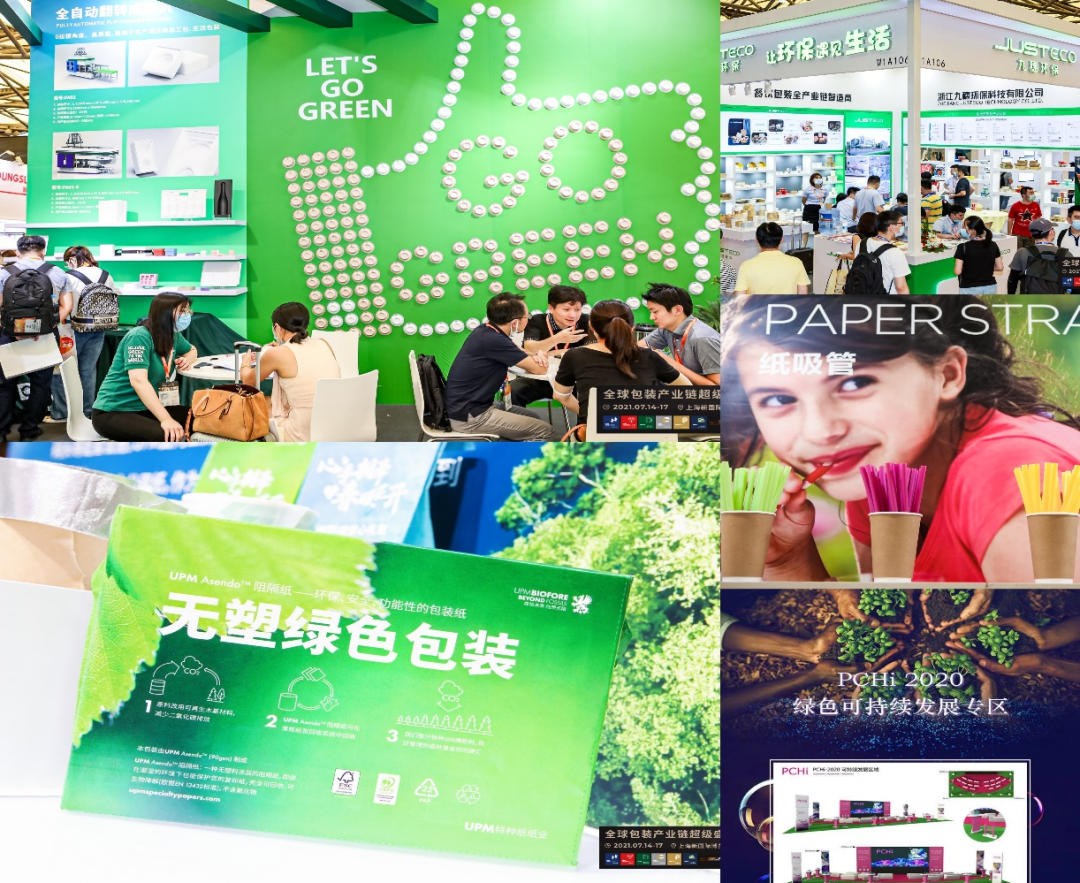
RX partners with venues and suppliers to drive Net Zero Carbon Events

On 6 November, the COP27 Climate Change Conference gets underway in Sharm El-Sheikh. As a founding signatory to the UFI Net Zero Carbon Events Pledge, RX is committed to helping the events industry achieve Net Zero by 2050. Collaboration between organisers, venues and contractors is key to making our Net Zero goals a reality. We reveal how RX is partnering with ExCel London, New York’s Javits Center, Messe Wien, Freeman and STANDout, amongst many others, to drive the sustainable change we all need to see.
RX events bring entire industries together to inspire, learn and share. Around the world our shows are helping customers to navigate sustainability challenges, inspire transformation and accelerate their journeys to Net Zero. At the same time, we are on our own journey to reduce the environmental footprint of our events by reducing our carbon emissions.
As a founding member of the Net Zero Carbon Events pledge RX is committed to being Net Zero by 2050, and to making a 50% reduction in greenhouse gas emissions by 2030. In fact, we have pledged to become Net Zero by 2040, 10 years ahead of schedule, in line with our parent group RELX. Given the complex nature of the emissions associated with our trade and consumer events, it is only by working in partnership with our industry that we will be able to reduce our impact.
RX reports on our scope 1 and scope 2 emissions through our parent company in the RELX Annual Corporate Responsibility Report.
Earlier this year RELX launched the RELX CO² Hub, a cloud-based dashboard that connects data from multiple internal and external sources to allow us to internally measure, analyse and visualise our CO2 emissions, much of it in real time. This currently includes scope 1 (direct emissions from boilers and vehicles); scope 2 (indirect emissions from electricity or purchased energy in our own operations); and some scope 3 (emissions in our value chain including business travel, homeworking, commuting).
To meet our net zero pledge commitments, our challenge now is to measure and reduce our wider and more complicated scope 3 emissions – those related to all aspects of our events, such as emissions from venue energy and production and waste from stands, signage and carpets.
ExCeL London, UK
A fellow signatory to the UFI Net Zero Carbon Events Pledge, ExCeL London is one of the UK’s leading international exhibition and convention centres hosting over 400 events a year, including two of RX’s largest events, World Travel Market and MCM Comic Con.
Certified PAS2060 carbon neutral in 2022, ExCeL uses 100% renewable electricity, sends zero waste to landfill (and recycles 71% of it), and houses the UK’s largest wormery which recycles food waste from ExCeL’s kitchens, generating fertiliser for green spaces around the venue.
“RX has a history of partnering with ExCeL to reduce the environmental impact of our events, but the UFI Pledge has transformed the nature of our relationship putting sustainability at the heart of our planning conversations”
ExCeL already provides RX with metrics on electricity, gas and waste, and in 2022 Jen and her team are looking to obtain water consumption data too. RX is also working with ExCeL on offering exhibitors sustainable options for signage, food services and more when they make their bookings and incentivising them to have important waste management conversations early in the planning process.
“One of the biggest challenges we face is when exhibitors and contractors have been doing an event for a number of years it can become a ‘tick and repeat’ exercise” explained Jen. “Partnering with ExCeL to raise awareness of greener alternatives will enable us to engage more customers on the sustainability journey.”
“Collaborating with the Sustainability Team at RX is pivotal in understanding where and how we can support each other in achieving our ambitions” agreed ExCeL’s Sustainability Manager, Natalie Sykes.
In 2019, to reduce the amount of waste produced at the venue, ExCeL introduced pre-booking of bins and skips by exhibitors via their webshop and charges for waste disposal, resulting in a 42% reduction in waste volumes. “To go even further, we have organised a collaboration meeting with RX and our waste management provider to discuss future initiatives,” said Natalie.
New York’s Javits Center, US
Among RX’s biggest venue partners in the US is the New York’s Javits Center which has emerged as one of the leading examples of sustainability in the events industry. Located on the banks of the Hudson River, the venue features a 6.75 acre green roof that serves as a habitat for more than 35 species of birds, as well as bats and honeybees. It also boasts a rooftop farm, innovative waste management strategies which benefit the local community, and Manhattan’s largest rooftop solar farm.
“At the Javits Center, we’re striving to be a better neighbor to all New Yorkers and our journey toward sustainability grew out of that ideal” revealed Jacqueline Tran, Director of Energy and Sustainability. “As a convention center on Manhattan’s West Side, our primary mission is to support the Empire State economy, but our sustainability program has enabled us to improve the quality of life in the community around us. From creating a wildlife sanctuary to installing a one-acre rooftop farm, our goal is to prove the power of sustainability and inspire others to follow our lead.”
“The Javits Center is leading the charge on Net Zero among venues in the USA” said Mike Grant, Senior VP for RX’s Operations Group in the US. “Their recently completed expansion enabled them to build sustainability into the concept and has become a gold standard. As the home to New York Comic Con, ISC East and Vision Expo, among other RX events, this gives us exciting opportunities to work together, particularly on reducing our energy and water consumption and recycling the waste generated by our events.”
Since 2018, leftover materials from RX events, such as furniture and household items have been diverted to local non-profit organisations, as part of the JavitsCares programme, and in 2019 the initiative was expanded to include food rescue to support local organisations fighting food insecurity.
“Repurposing event materials and giving them a second life at a local school or house of worship exemplifies the impact of the event industry beyond the confines of a particular event and reinforces the importance of our operations on the local level” explained Jacqueline. “We also are providing RX with metrics including utility, waste, and donations data for all their events to help them establish a baseline to determine their goals for each subsequent event and make improvements over time.”
Freeman, global event solutions
As a world-leading event supplier at the sharp end of waste production and management, Freeman is committed to creating a less wasteful and more sustainable industry. The company was the first general services contractor to earn both the ISO 14001 and ISO 20121 certifications, which help to guide and measure its actions and approach to sustainability and, with RX, was also one of the first to sign the Net Zero Carbon Events pledge.
“Sustainability comes standard at Freeman as it’s built into our service offerings at every show” explained Marisa Heller, Sustainability Manager. The company offers a suite of sustainable products, from graphics to flooring options; conducts a daily labour briefing that includes sustainable event goals and plans for recycling and donations; and has an Engine Idling Policy at all locations.
Freeman is the contractor for many of RX’s market-leading US events. Earlier this year the companies worked together to reduce CO2 emissions at the National Hardware Show by eliminating carpet from most of the event. “By restricting carpet to the two main aisles and lounge areas only, we prevented 18,656 metres of carpet going to landfill, which reduced our carbon emissions by 8.5 tonnes,” said Event Director, Beth Casson. “To help educate our customers on the benefits of being carpet-free, Freeman supplied us with large floor stickers in place of the carpets to communicate our energy saving data. Thanks to Freeman, we were also able to ensure that the main aisle and lounge carpets contained 25% recycled materials and would be re-used at least four times.”
“When approaching an event with a customer it’s imperative that we’re collaborative, that we set design sustainability into the event from the start. And when it’s over, we need to measure those results, see what the real impact was, and how we can constantly improve moving forward”
In June 2022, RX and Freeman undertook a pilot project at JCK Las Vegas, with the support of The Venetian, to capture data and measure the total impact of the event. “Freeman have been very forward-thinking on how they measure their own direct impacts, and those of their suppliers, and we are working with them to incorporate our own impacts, and those of our venues, into each report” explained RX’s Mike Grant. “Our goal is to provide a model that we can take to other venues and suppliers to secure their collaboration going forward.”
Reflecting on the transformation of RX’s venue and contractor partnerships in the wake of the Net Zero Pledge, RX Sustainability Director Helen Sheppard concluded: “The UFI Net Zero pledge has supercharged industry collaboration, giving us a focus for discussing what we need to achieve, and a roadmap to help define how we get there. Previously, everyone was valiantly trying to do their own thing. But unless your sustainability goals are aligned you are never going to reach the desired outcome. We are excited about the future for sustainable events and committed to making them a reality.”
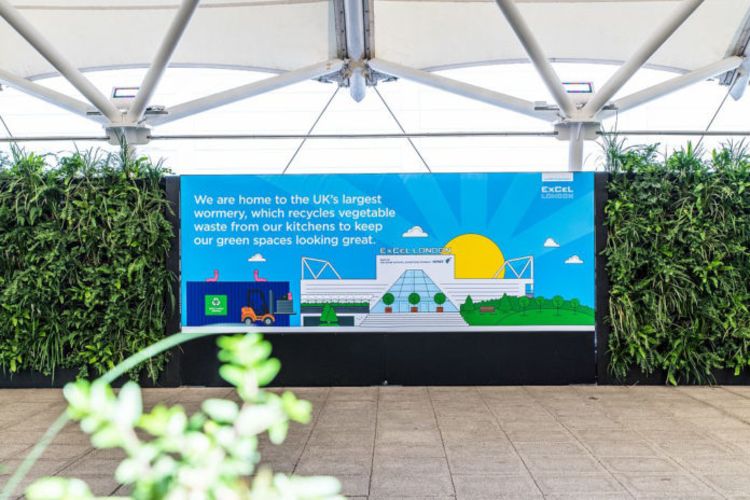
Driving clean energy innovation and investment
The World Future Energy Summit held its 16th edition in 2024 in Abu Dhabi, which coincided with unprecedented rainfall and flooding across the Emirates in April, as if to drive home the urgent need for action on climate change. The event saw record participation, making it the largest in the Summit’s 16-year history.
As one of the world’s leading business events for renewable energy, clean-tech, climate change and sustainability, the World Future Energy Summit brought together industry influencers, thought leaders, policymakers, investors, corporate partners, and world-class start-ups. It was the perfect platform to accelerate the innovative thinking and investment needed to meet the goals of COP28, held in Dubai in December 2023.
This year’s expanded knowledge-sharing programme introduced three new forums on Green Finance, eMobility, and Pathway to 1.5C. These complemented the five existing conferences focussed on, EcoWASTE, Water, Clean Energy, Smart Cities, and Climate & Environment, as well as a Masdar-hosted Green Hydrogen Summit. In total, 150 dynamic sessions featured more than 350 expert speakers.
On the expo floor, 450 exhibitors from 60 countries, showcased their ideas, projects and innovations to over 16,000 attendees from business, government, and the investor community. Dozens of startups presented game-changing sustainability-themed products and solutions, with this year’s Climate Innovations Exchange (CLIX) initiative highlighting 22 female-led startups and SMEs. Throughout the three days, the Sustainability Business Connect programme (SBC) facilitated meetings, VIP tours, private consultations and more to enhance the Summit experience.
Reflecting on the event, Abdul Rahman Bafaraj, Project Development Senior Manager at EWEC, said: “The World Future Energy Summit is a great opportunity for EWEC to collaborate with government entities and technology providers. It’s a platform to share knowledge, understand the future of energy, and work towards sustainability.”
Looking to its own environmental impact, the World Future Energy Summit is powered by 100% clean energy provided by the Emirates Water and Electricity Authority (EWEC) as part of their Clean Energy Certificate (CEC) scheme. The team recycled 59% of stand materials and other non-food waste in 2023, a target it aims to exceed for 2024. This year they also worked with UAE’s National Food Loss and Waste Initiative, Ne’ma, diverting 1.4Kkg of food waste from landfill, creating 231kg of compost, and donating 728 meals to the community. World Future Energy Summit hopes to transform the way events are hosted in the region by creating a more sustainable summit year on year and encouraging others to do the same.
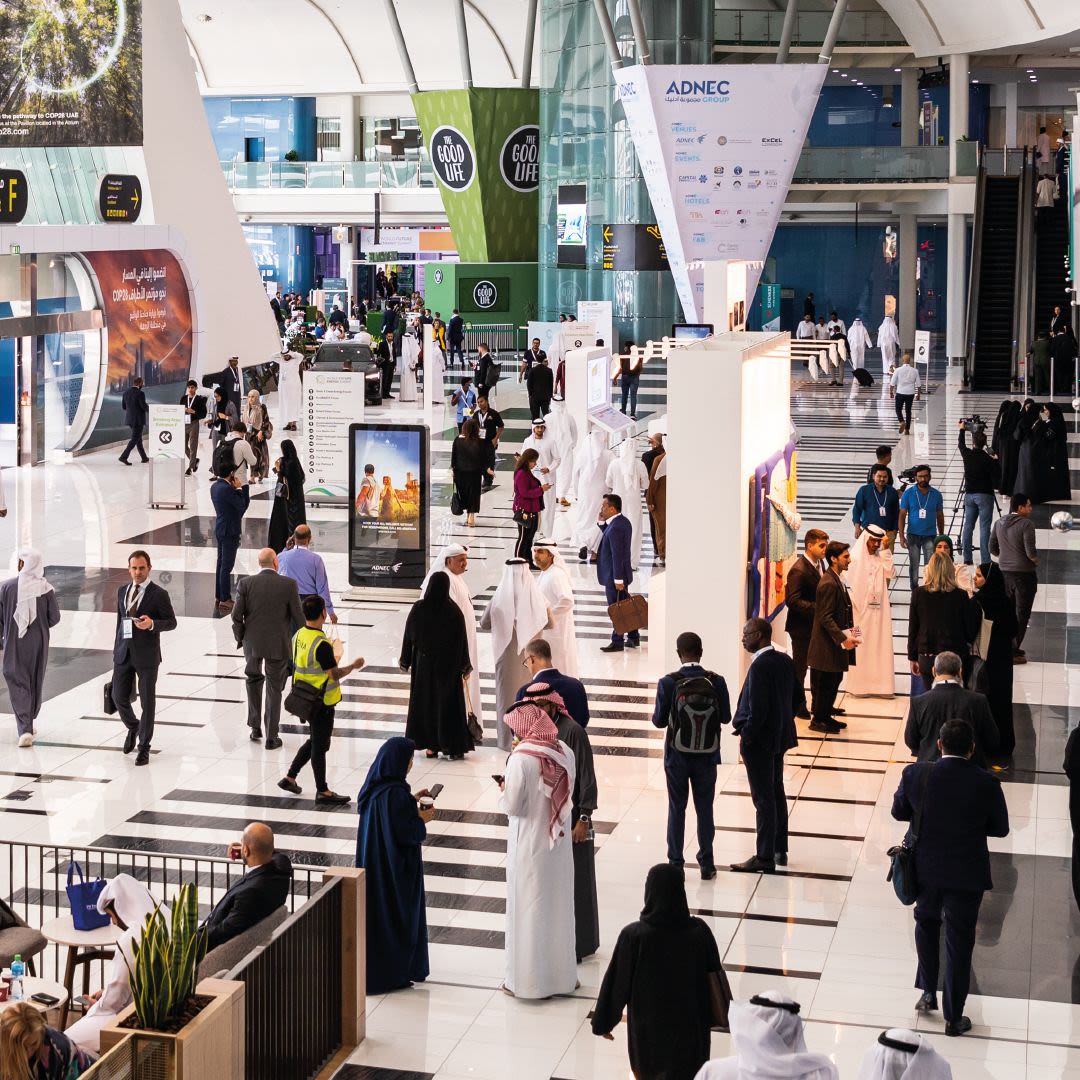
World Smart Energy Week Japan
The liberalisation of Japan’s energy market in 2016, combined with its Green Growth Strategy to achieve net-zero emissions by 2050, is creating fertile ground for companies seeking to invest in, develop, or source renewable energy solutions in Japan – as reflected in the growth of World Smart Energy Week.
Now in its nineteenth year, World Smart Energy Week has expanded from the world’s first (and still largest) event dedicated to hydrogen and fuel cell technology to the leading international event for smart energy tech and carbon neutral solutions.
World Smart Energy Week is held three times a year Tokyo (March and September) and Osaka (November). The latest Tokyo edition comprised seven exhibitions and world-class conference sessions filling up Tokyo Big Sight, Japan’s largest exhibition centre. They showcased the latest advances in hydrogen and fuel cells, solar power, rechargeable batteries, smart grids, wind power, biomass, and zero-emission thermal power generation.
Running alongside the Tokyo event was the first edition of Circular Economy Expo, launched to showcase technology which supports the sustainable reuse and regeneration of materials and products; and the second Decarbonisation Expo dedicated to solutions such as zero carbon consulting, visualization of GHG (Greenhouse Gas) emissions, corporate PPAs (Power Purchase Agreements), energy saving and more.
Final attendance data is awaiting verification, but more than 1,200 exhibiting companies and over 50,000 visitors from around the world were expected to attend the concurrent exhibitions, taking part in active business meetings, technical consultations, and the 200+ conference sessions. Keynote speakers included Brent Wanner, Head of the Power Sector Unit, World Energy Outlook for the International Energy Agency; Liesje Schreinemacher, Minister for Foreign Trade and Development Cooperation, Government of the Netherlands; and Kazuyuki Iwata, Executive Chief Engineer at Honda R&D.
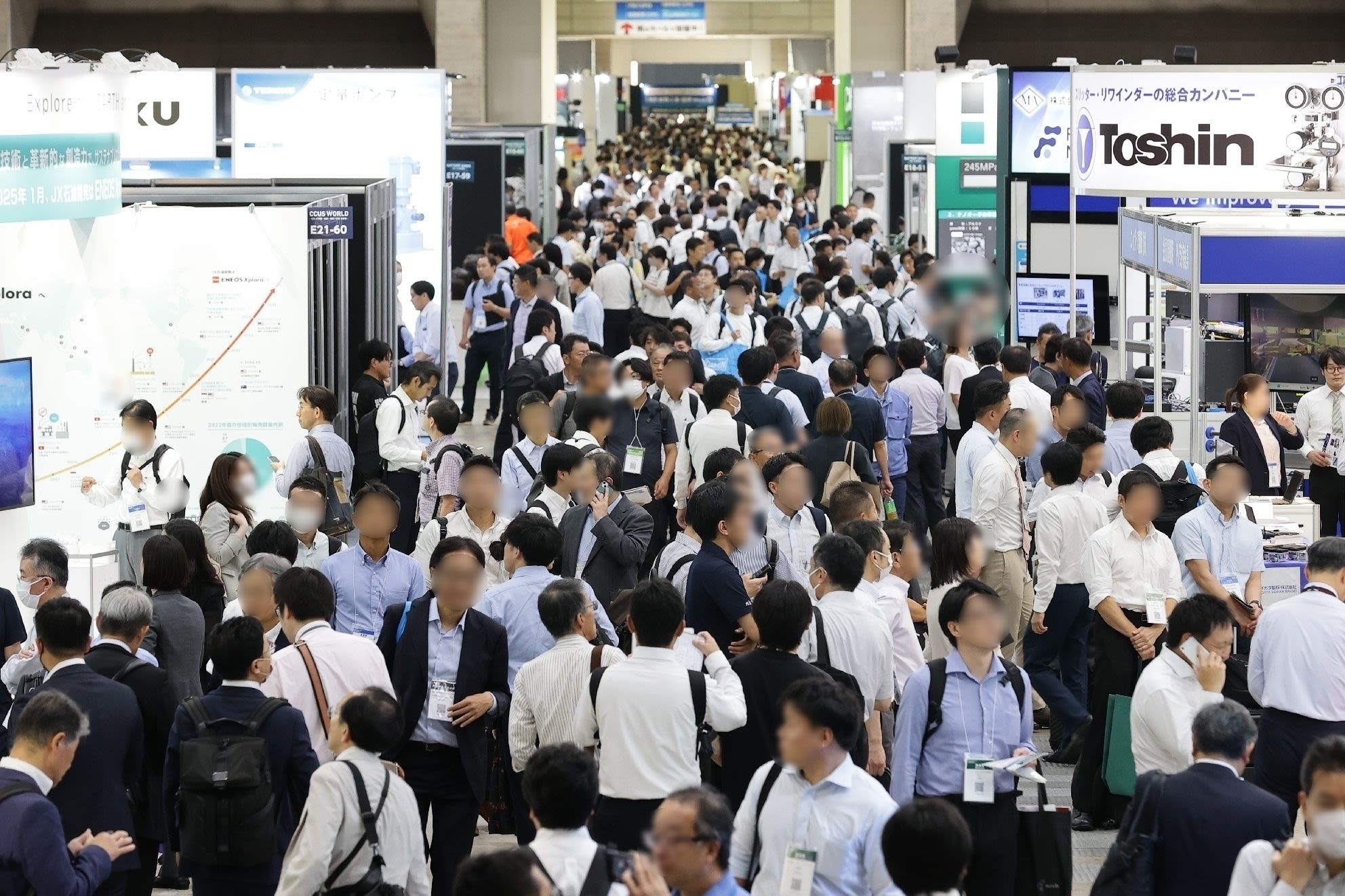
Engineering a net zero future - All-Energy
All-Energy is super proud to be the UK’s biggest event for low carbon energy and renewables. At the same time, the co-located Dcarbonise is all about helping both private and public sector energy users. The 2024 events, held at the end of May, broke all previous records with over 11,736 visitors from 80 countries.
“We knew we were on track for a new record before the show even opened, but we never imagined a 21% jump over last year’s numbers,” said Jonathan Heastie, Portfolio Director at RX Global. “It really shows how much the industry is growing and how valuable these events are to everyone involved.”
The huge turnout was clear with packed aisles, conference halls, and show floor theatres. Over 600 speakers took the stage over the two days, including Màiri McAllan MSP, Scotland’s Cabinet Secretary for Net Zero and Energy.
There were 11 conference tracks covering everything from policy to innovative solutions in renewable power, low carbon heat, and low carbon transport, with a special focus on ‘The Great Grid Upgrade.’ Eight quick-fire show floor theatres tackled topics like hydrogen, energy storage, future talent, and decarbonising the built environment.
The vibe was electric, and business was booming. For the first time, attendees could easily get info about products and suppliers by scanning QR codes on exhibitor stands with their smartphones. Exhibitors could use RX’s Lead Manager tool to scan, qualify, and follow up with buyers. More connections were made at The Giant Networking Evening and Civic Reception, sponsored by Siemens Energy and Siemens Gamesa and hosted by the Rt Hon the Lord Provost of Glasgow.
Many of the 270 exhibiting companies have already signed up for the 2025 event, which will be held at Glasgow’s SEC on 14 and 15 May to celebrate All-Energy’s silver anniversary.
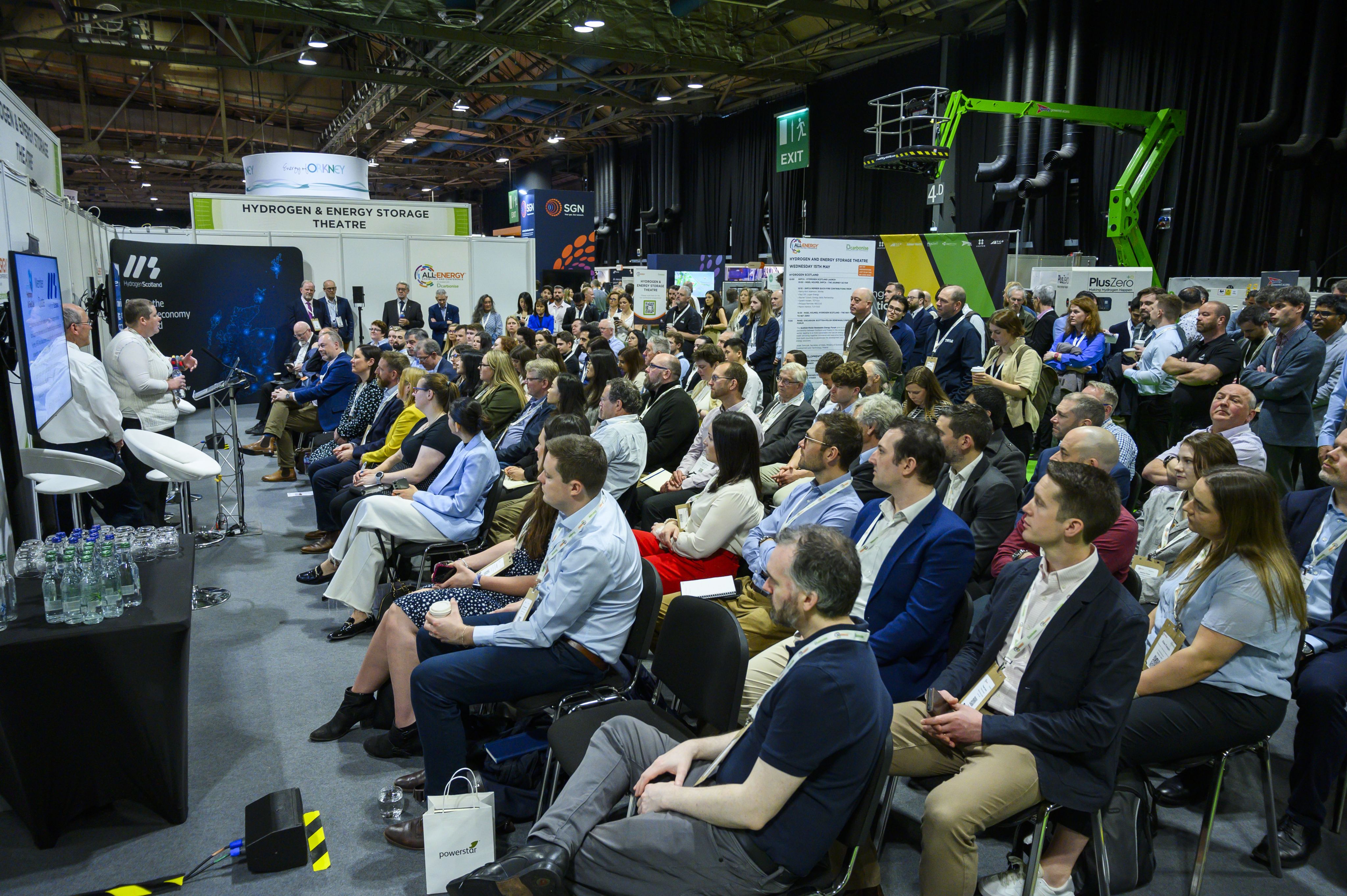
All Energy Australia
All-Energy Australia is the largest and most anticipated event in the country’s clean energy sector's annual calendar. Held in partnership with the Clean Energy Council, the free-to-attend event provides attendees with exclusive access to the latest technology, information and trends relevant to those working or investing in the renewables sector.
The goal for Australia to become powered by renewables by 2030 is an ambitious one which will require industry, government and stakeholders, the research community and consumers to all work together.
A recent piece of research conducted by Infrastructure Australia estimates that the renewable energy transition will need up to 30,000 workers in the coming years to build enough solar farms, wind farms, batteries, transmission lines and pumped hydro storage to transform the country’s energy system. Additionally, it is estimated that Australia will invest around A$66 billion in large-scale renewables and A$27 billion in rooftop solar and battery storage over the next 15-20 years, making it a huge market opportunity for solutions providers.
All-Energy Australia 2023 takes place from 25th-26th October at the Melbourne Convention and Exhibition Centre (MCEC) at a critical time for the country’s energy transition. The event will feature more than 350 suppliers, 250 plus expert speakers and attract more than 10,500 industry professionals for two days of knowledge sharing, product demos, and business meetings.
With billions of dollars predicted to be invested in rooftop solar and battery storage, All-Energy Australia in conjunction with the Clean Energy Council will be holding the Clean Energy Council’s Solar Masterclass ‒ a one-stop shop for solar designers and installers to get expert advice on the major design and installation issues currently facing the industry. Attendance is free and CPD points will be available to eligible installers who scan into each session.
The event will also be hosting the all-new Energy Management Zone, completely focused on sustainable solutions that facilitate improved energy management and increased cost savings. Session topics will include agriculture, food and beverage manufacturing, metals and other materials manufacturing, residential buildings, commercial buildings and government operations.
All-Energy Australia will be co-located with Waste Expo Australia, forming the most significant national showcase of clean energy and sustainability.
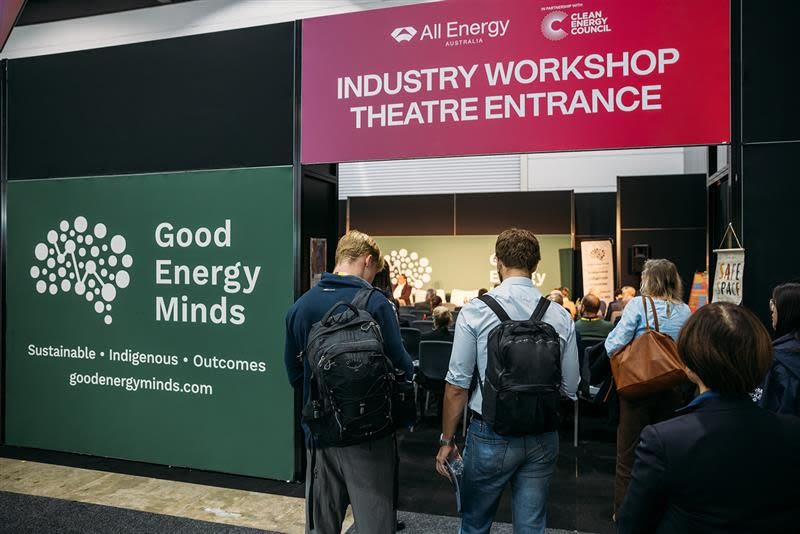
Driving decarbonisation in real estate development
With construction and real estate accounting for a third of global energy-related CO2 emissions, cities, buildings and transportation are the cornerstones to making net zero a reality. And as the world’s largest international real estate event, MIPIM is taking decisive steps to help mitigate climate change, and deliver positive change for people, communities and the planet.
As part of this ongoing decarbonisation journey, MIPIM has signed up to the “Road to Zero Alliance” of high-profile businesses, including PWC and real estate investment trust Icade, to take faster, more effective action.
MIPIM 2023 (14-17 March, Cannes) saw the launch of a new Road to Zero area, combining 400 sqm of exhibition, networking and conference space with a focus on ground-breaking methods to decarbonise the real estate industry. Sponsors and exhibitors included Schneider Electric, Schindler, PwC, Veolia, Building Minds and Carrier, with conference content curated by Urban Land Institute (ULI), along with the World Green Building Council (WGBC) and the World Business Council For Sustainable Development (WBCSD).
The MIPIM team also delivered the first Co-Liv Summit, held in response to the growth in alternative ways of living. The new Infrastructure Stage highlighted the urgent need to consider every aspect of the urban realm in a holistic way, addressing the impact of water, energy, data centres and transport on property development.
22,500 delegates from 90 countries, including 76 of the world's top 100 investment managers advising on €4 trillion of assets, took part in the dynamic new format of MIPIM exhibitions, discussions and panel talks.
The program centered on ESG, Innovation, and technology solutions able to accelerate the transformation of the built environment towards a more sustainable model, welcomed high level personalities such as Christophe Béchu, French Minister for Ecological Transition and Cohesion of the Territories, Professor Jeremy Rifkin, American economic and social theorist author of 20 bestselling books, and Cristina Gamboa, Chief Executive Officer of the World Green Building Council.
“In an uncertain global environment, MIPIM acts as a catalyst for innovation and a focal point for the transformation of real estate,” said Nicolas Kozubek, MIPIM Director. “More than ever, we experienced an incredible energy from political leaders, investors and the wider real estate community that are collaborating to create better, more sustainable buildings and places. We learnt this year that common, local challenges require worldwide solutions. We look forward to continuing these conversations at MIPIM Asia on 5-6 December in Hong Kong, and at MIPIM NY in November, a new event in New York that will be dedicated to charting a path forward that puts the ideas coalescing at MIPIM 2023 into action.”

Climate top of the conference agenda
The opening session of the ATM conference saw policymakers take to the ATM Global Stage for a ministerial debate on how travel can tackle the climate crisis. The discussion was moderated by Eleni Giokos, CNN Anchor and Correspondent, and the prestigious line-up of speakers included HE Abdulla Bin Touq Al Marri, UAE Minister of Economy; Dr Abed Al Razzaq Arabiyat, Managing Director, Jordan Tourism Board; HE Walid Nassar, Minister of Tourism, Lebanon; and Sukit Mohanty, Chief of the UNDRR for Arab States.
Jordan is one of the highest-ranking countries in the region on The Euromonitor Environmental Sustainability Index and responsible tourism is now a key focus for the nation. “Educating both businesses and travellers on how they contribute to the carbon footprint is one of our key priorities. In parallel with education, we are offering incentives to hotels, businesses, and other stakeholders to encourage sustainable practices,” said Dr Arabiyat.
Other conference highlights included Technology: The Enabler of Sustainable Travel, Sustainability in the Travel Industry: Who Pays? and Green Technology for Responsible Tourism during which experts shared insights into the role of innovation in helping to minimise carbon emissions, water consumption and waste across the sector. In addition, the Sustainable Hospitality Alliance addressed the importance of protecting the locations, livelihoods and communities in which hotels are located as part of the Achieving Net Positive Hospitality session.
Sustainable Hub and Startup competition
ATM 2023 featured a Sustainability Hub for the first time in the show’s history. The Hub offered a venue for dynamic sessions and interactive workshops on the latest sustainable travel trends and innovations. It also provided the backdrop for the ATM 2023 Start-up Competition – an event hosted by conference partner Plug and Play, which saw entrepreneurs go head-to-head in a ‘Sustainable Tech Pitch Battle’.
Six innovative start-ups battled it out before a panel of expert judges as they pitched their solutions to create travel sustainability and aid the industry’s recovery. Sustainable commercial food waste solutions company, Winnow, beat off stiff competition from CarbonClick, Eilago, Hotelverse, OACIS Middle East Limited LLC and Thrust Carbon to be crowned this year’s winner.
Winnow’s analytics platform makes collecting data easy, pinpoints waste and drives operational improvements that can cut food waste in half. As well as generating significant publicity for their technology the company won a complimentary 12m sq. shell scheme stand at ATM 2024 and automatic acceptance into Plug & Play’s Startup Accelerator cohort.
Encouraging participants to ‘think green’
To support and encourage exhibitor sustainability at ATM 2023 the team implemented an ‘Exhibitor Environmental Checklist’ and introduced a brand-new ‘Sustainable Stand Award’ as part of their commitment to ensuring the upcoming show is the most climate-conscious in its history.
Created with the United Nations’ Sustainable Development Goals (SDGs) in mind, the Exhibitor Checklist featured practical advice for participants on how to manage waste, minimise their energy consumption and reduce CO2 emissions, as well as guidance on how to create greener promotional materials and exhibition stands.
The Sustainable Stand Award, won by Hilton, was launched to recognise and celebrate those exhibitors who have already taken steps to reduce their environmental impact and support the UAE’s net zero commitment. Entries were judged based on an extensive range of sustainable criteria, including supplier choice, material usage, operational efficiency, and what happens to the stand once the show has concluded.
Hilton was praised by the exhibition’s independent panel of judges for its decision to engage a local supplier in the creation of its stand, as well as its commitment to repurposing as many materials as possible over the coming three years. To support its ecologically responsible approach to its stand design, Hilton is measuring its environmental footprint with a carbon calculator and took steps to mitigate the impact of its catering activities throughout the show, in line with the company’s long-term sustainability goals.
In addition to Hilton, the ATM 2023 Best Stand Awards judges commended a number of other exhibitors for their sustainable efforts, including The Royal Commission of AlUla for paying close attention to the sustainable materials used in its stand’s design, and Switzerland Tourism for its ‘sustainability wall’ and reusable modular system.
Reflecting on the positive response to the initiatives, Danielle Curtis said: “We are confident that by engaging stakeholders with tools and initiatives such as our Exhibitor Environmental Checklist and Most Sustainable Stand category, ATM 2023 will not only set a new benchmark for sustainability within the Middle East’s exhibitions space but also help drive climate-conscious decision-making across the region’s travel, tourism and hospitality industry.”
30 steps to a zero carbon ATM
ATM is organised by RX, which has pledged to become net zero by 2040 in line with parent group RELX. To mark 30 years of ATM, whilst also looking to the future, the team announced 30 short- and long-term sustainability goals, which will not only support RX’s corporate pledge, but also assist ATM’s own journey to becoming a net zero event.
For 2023, these included the removal of printed show guides, the use of recycled paper for show dailies and the ATM Yearbook, a paperless media centre, use of sustainable badges and lanyards, and taking steps to eliminate single use plastic across the entire venue in collaboration with Dubai World Trade Centre (DWTC).
Other waste reduction initiatives undertaken in collaboration with DWTC included a partnership with UAE Food Bank to donate surplus food to people in need, with 680kg of food donated. Food which could not be donated was collected and composted. Segregated bins enabled the sorting and recycling of waste during build-up and break-down; and a new waste solution system called Ompeco was trialled which converts exhibitor waste into fluff that can be re-used in concrete and construction. ATM is working with DWTC to measure how much waste was produced at the 2023 event to set a benchmark for year on year reduction, even as the show grows.
ATM also became the first event to introduce RX’s new Colleqt Smart Badges, which eliminated the need for business cards and printed sales materials. By scanning the QR codes provided, attendees could quickly share their details with an exhibitor to get the information they required delivered straight to their smart phone. Visitors were also prompted on entry to scan a QR code to access the interactive floorplan, enabling them to navigate the show floor following the removal of the printed show guide.
“As well as providing thought leadership on sustainability across all sectors of travel our tourism, and encouraging our exhibitors to ‘think green,’ we are working closely with our partners, suppliers & advisors to find ways to establish practices that will make ATM a more sustainable show” explained Danielle. “Our long-term goals for ATM will include not just education and encouragement to reduce waste and carbon emissions but a requirement to do so. Only by working together in this way can we make a positive impact on the environment in the future.”

Waste Expo Australia: Advancing towards sustainable resource recovery
Waste Expo Australia is the ultimate showcase for waste management and resource recovery and the fantastic turnout at the last event in October 2023 points to the industry’s strong future.
It was the largest event in the show’s history, with international exhibitors from 10 countries keen to connect with the biggest gathering of waste management and resource recovery professionals in Australia.
Opening the expo in Melbourne, Victorian Environment Minister Steer Dimopoulos said “there is a lot of innovation, passion and ingenuity in this space and to be able to share it at a forum like this is impactful and moves the needle forward.”
Sustainability Victoria and Recycling Victoria joined an impressive roster of event partners including the Australian Council of Recycling (ACOR), Australian Organics Recycling Association (AORA), and the Victorian Waste Management Association (VWMA), bringing new workshops, board meetings and industry breakfasts to the expanded content programme.
Attendees praised the quality and diversity of the free-to-attend conference which addressed key themes including the circular economy, waste innovation and waste-to-energy. Matt Genever, CEO of Sustainability Victoria, called it the best waste-focused event he has attended.
Exhibitors also had great things to say. One noted, "The expo was very well organized. Being our first time attending this expo, the sheer volume of attendees and the diversity of businesses that engaged with us surpassed our expectations. It was a fantastic expo experience, and we look forward to returning next year.”
“We love hearing from multiple exhibitors and speakers about the encouraging conversations they’ve had at Waste Expo Australia,” reflected Exhibition Manager, Sherri Pearson. “It’s exciting to see businesses take the opportunities presented to them and really drive their own growth.”
Waste Expo Australia 2024 returns from October 23-24 at the Melbourne Convention and Exhibition Centre.

Viscome Italia: Designing sustainability into visual communications
Held in Milan every October, Viscom Italia is Italy’s most important event dedicated to the entire visual communication supply chain.
In 2021, when the Italian government gave sustainability a key role in the country’s economic and social recovery plan, the Viscom Italia team was inspired to play its part. In the same year, they pursued and obtained the “ISO 20121:2013 certification for Sustainable Event Organization” – and their mission to reduce event waste whilst promoting a more sustainable Viscom industry continues.
“All RX built exhibition features at Viscom Italia now employ reusable materials, rented furniture, energy saving (LED) lighting and mostly PVC-free/recyclable graphics and signage,” explained Sara Mazzucchi, Operations. “Aisle carpets have been reduced in width and are all 100% recycled by the supplier, Montecolino, which uses the recovered material to make recycled products such as the waste bins in the aisles. Water refill stations are available throughout the halls, and free water bottles made from recycled materials are distributed to event participants. Printed signs are being phased out in favour of digital. And most other handouts, from fabric bags to lanyards are made from recycled and recyclable materials.”
To reduce travel emissions at Viscom Italia 2023, the team partnered with Italy’s leading railway company, Trenitalia, to offer discounts of up to 80% on the tickets for participants. And building on a three-year partnership with Banco Alimentare della Lombardia and SITICIBO, they donated a percentage of sales on catering products and alongside surplus food, providing almost 23,000 free meals to local families in need.
To encourage the adoption of more sustainable display design, Viscom Italia introduced two Green DIVA Awards and organised the exhibit Elementaria, featuring prototypes of display design made of raw and sustainable materials. Viscom Talks focused on sustainability applied to design, packaging and retail. Motivated by their achievements, the team are promising yet more sustainable innovations at Viscom Italia 2024, including a Lead Manager App to reduce the need for printed business cards.
Viscom Italia 2024 is back in Milan from 16-18 October.
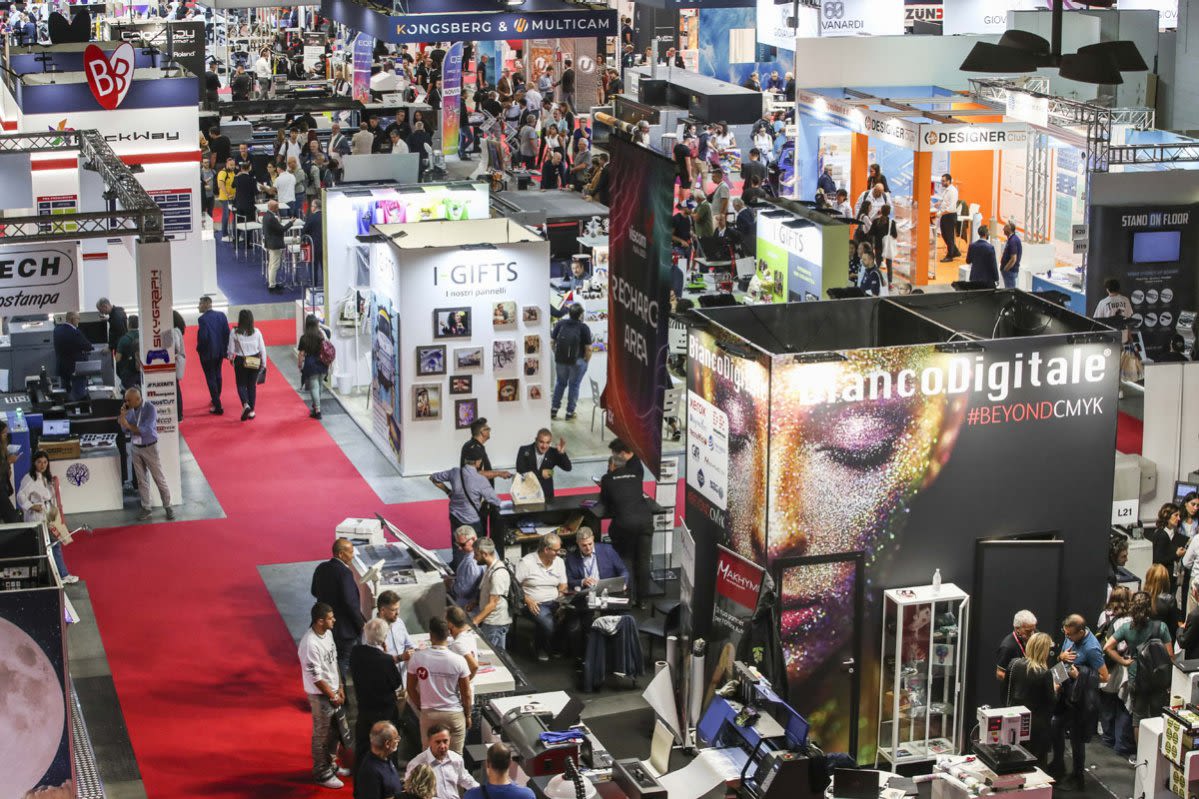
Sourcing fabrics with a conscience
Sustainability is at the heart of Functional Fabric Fair powered by PERFORMANCE DAYS® — the top marketplace in the U.S. for sourcing high-performance fabrics and accessories. We carefully vet all exhibitors to ensure they meet standards like the HIGG Index, Bluesign, GOTS, and Textile Exchange, guaranteeing the traceability of organic materials and promoting positive industry change.
At the latest Spring edition in Portland, Oregon, over 260 sustainable textile suppliers from around the world came together to showcase the latest trends, fabrics and technologies shaping the 2025/2026 Spring season.
Designers and decision-makers from top outdoor, lifestyle, and activewear brands enjoyed two days of inspiration, education and networking at the Trends Forum, Innovation Zone, Expert Talks and Sustainability Lounge.
The fair also debuted the 'Day (0) Zero: Sustainability Workshop,' which opened one day before the fair opened, drawing over 140 attendees eager to learn about critical topics such as supply chain dynamics and transparency, facilitated by sustainability experts like Jill Dumain of Fractal CSOS.
Leading by example, our sustainability commitment extends to the very fabric of our events. Every Functional Fabric Fair booth is crafted from 100% recycled fabrics stretched over reusable metal frames, minimizing waste. We also use 100% recyclable carpets throughout the feature areas and booth spaces, ensuring that none ends up in landfill.
Mark your calendar for the Summer edition of Functional Fabric Fair, taking place July 16-17 at the Javits Center in New York City. And if your sourcing needs are more urgent, check out The Loop, our year-round digital marketplace for performance fabrics.

Making hydrogen happen
Produced with very low, or no carbon emissions, hydrogen energy is an alternative to fossil fuels that may offer a cleaner way to power our world – which is why RX is delighted to welcome Sustainable Energy Conferences (SEC) to our growing clean energy event line-up.
With the May acquisition of World Hydrogen Summit, Hydrogen Americas, Hydrogen Asia-Pacific and the Sustainable Energy Council brand, we’re excited to grow the global hydrogen market across the entire value change from production, transmission, distribution and storage, to the main end-user sectors such as heavy industry and transportation.
The flagship World Hydrogen 2024 Summit & Exhibition (13-15 May) recently closed the doors on its biggest edition yet. Organised in partnership with the Government of the Netherlands, Province of Zuid-Holland, the Port of Rotterdam and the City of Rotterdam, it featured a C-Level Summit, and the largest hydrogen-focused exhibition in the world – not to mention the Africa Hydrogen Forum, the H2 Tech Series Stages, the World Hydrogen Awards, incredible site visits to the Port of Rotterdam hydrogen projects, and non-stop networking opportunities.
Next up is the Hydrogen Americas 2024 Summit & Exhibition which returns to Washington D.C. (US) on 11 – 12 June 2024. The US is at the forefront of hydrogen investments and the speaker line-up is packed with policy makers and key industry leaders from across the US, Americas and further afield, including Dr Sunita Satayapal, Director and Hydrogen Program co-ordinator, US Department of Energy; Shinichi Kihara, Director General for Energy and Environmental Policy, Ministry of Economy Trade and Industry Japan; and Seifi Ghasemi, Chairman, President and CEO, Air Products. Click here for more information and to register.
